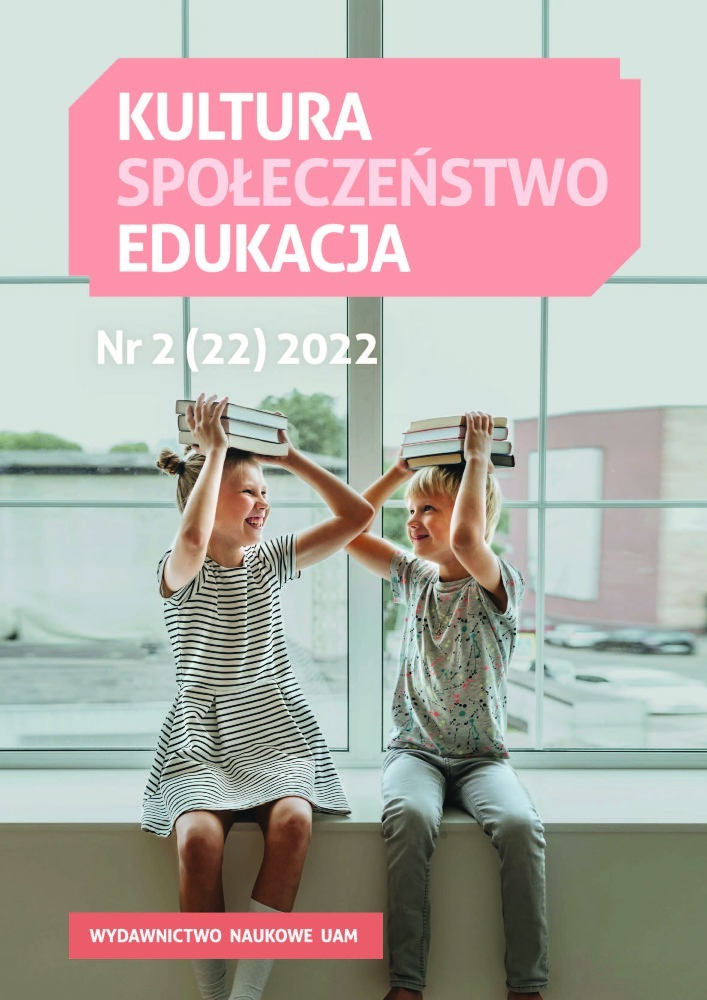Abstrakt
This article aims to examine and make recommendations to the initial assessment procedures in Adult Education context in the United Kingdom. Teachers and learners are constantly making opinions about their development, and formative assessment is one of the tools used to recognise it. In Adult Education, in addition to formative assessment, learners are expected to undergo initial assessment, testing their level of knowledge/abilities in Language, Literacy or Numeracy. Within the Adult Education context, there are several initial assessment methods available. However, it is the providers who decide which methods are most appropriate for their learners, as different methods may be appropriate in different areas. This research project focuses on an Adult Education provider based in the Midlands, United Kingdom, and offers findings that test and sometimes refute the current theory about initial assessment. Two research methods were employed to achieve the aim and objectives. Firstly, secondary data was researched. Secondly, the qualitative primary data was collected using in-depth focus groups. The research included both practitioners and learners who either conducted or experienced needs analysis processes in the adult learning context. The findings and recommendations of this article propose the use of a more ethical and reliable way of conducting initial assessment in the Adult and Community Learning context.
Bibliografia
Abedi, J. (2008). Measuring Students' Level of English Proficiency Educational Significance and Assessment Requirements. Educational Assessment, 13(2), 193-214. https://doi.org/10.1080/10627190802394404 DOI: https://doi.org/10.1080/10627190802394404
Armitage, A., & Renwick, A. (2008). Assessment in FE: A Practical Guide for Lecturers. Continuum.
Bathmaker, A. (2005). Becoming a lecturer in further education in England: the construction of professional identity and the role of communities of practice. Journal of Education for Teaching, 31(1), 47-62. https://doi.org/10.1080/02607470500043771 DOI: https://doi.org/10.1080/02607470500043771
Britton, J., Farquharson, C., Sibieta, L., Tahir, I., & Waltman, B. (2020). 2020 Annual Report on Education Spending in England. The Institute for Fiscal Studies. Cedefop. (2020). 2020 European Skills Index. Publications Office of the European Union: Luxembourg.
Cohen, L., Manion, L., & Morrison, K. (2017) Research Methods in Education. Routledge-Falmer. https://doi.org/10.4324/9781315456539 DOI: https://doi.org/10.4324/9781315456539
Department for Education. (2019). Independent panel report to the Review of Post-18 Education and Funding. Department of Education. https://assets.publishing.service.gov.uk/government/uploads/system/uploads/attachment_data/file/805127/Review_of_post_18_education_and_funding.pdf
Department for Education. (2021). ESFA funded adult education budget (AEB): funding and performance management rules 2021 to 2022. Department of Education. https://www.gov.uk/guidance/adult-education-budget-aeb-funding-rules-2021-to-2022
Education and Training Foundation. (2021). Initial assessment. Excellence Gateway. https://toolkits.excellencegateway.org.uk/functional-skills starter-kit/section-3-developing-effective-practice/assessment-functional-skills/initial-assessment
Elder, C., & von Randow, J. (2008). Exploring the Utility of a Web-Based English Language Screening Tool. Language Assessment Quarterly, 5(3), 173-194. https://doi.org/10.1080/15434300802229334 DOI: https://doi.org/10.1080/15434300802229334
Gravells, A. (2016). Principles and Practices of Assessment - A guide for assessors in FE and skills sector. Learning Matters: London.
Kitchin, R., & Tate, N.J. (2000). Conducting research into human geography: theory, methodology and practice. Prentice Hall.
Krippendorp, K. (2004) Content Analysis: An Introduction to its Methodology. Sage.
Lavender, P., Derrick, J., & Brooks, B. (2004). Testing, Testing... 1, 2, 3: A Policy Discussion Paper on Assessment in Adult Literacy, Language and Numeracy. NIACE.
Leitch, S. (2006). Prosperity for all in the Global economy-world class skills: Final Report. GOV.UK. http://www.hmtreasury.gov.uk/independent_reviews/leitch_review/review_leitch_index.cfm
Looney, J. (2007). Formative assessment in adult language, literacy and numeracy. Assessment in Education: Principles, Policy & Practice, 14(3), 373-386. https://doi.org/10.1080/09695940701592048 DOI: https://doi.org/10.1080/09695940701592048
Moser, C. (1999). A Fresh Start - improving literacy and numeracy. Lifelong Learning. http://www. lifelonglearning.co.uk/mosergroup/index.htm
Reder, S., & Bynner, J. (2009). Tracking adult literacy and numeracy skills: findings from longitudinal research. Routledge-Falmer. https://doi.org/10.4324/9780203888889 DOI: https://doi.org/10.4324/9780203888889
Saunders, M., Lewis, P., & Thornhill, A. (1997). Research methods for business students. Pearson Professional Ltd.
Scaife, J., & Wellington, J. (2010) Varying perspectives and practices in formative and diagnostic assessment: a case study. Journal of Education for Teaching, 36(2), 137-151. https://doi.org/10.1080/02607471003651656 DOI: https://doi.org/10.1080/02607471003651656
The Key Skills Support Programme. (2006). Improving Initial Assessment - Guide to Good Practice. Crown Copyright: Bristol.
The Quality Improvement Agency for Lifelong Learning. (2008). Guidance for Assessment Learning. Excellence Gateway. http://sflip.excellencegateway.org.uk/pdf/4.2sflguidance_5.pdf
Tummons, J. (2011). Assessing Learning in the Lifelong Learning Sector. Learning Matters: Exeter.
Weaver, M.R. (2006). Do students value feedback? Student perceptions of tutors' written responses. Assessment & Evaluation in Higher Education, 31(3), 379-394. https://doi.org/10.1080/02602930500353061 DOI: https://doi.org/10.1080/02602930500353061
Wyatt-Smith, C.M., & Cumming, J.J. (2003) Curriculum Literacies: Expanding domains of assessment. Assessment in Education: Principles, Policy & Practice, 10(1), 47-59. https://doi.org/10.1080/09695940301690 DOI: https://doi.org/10.1080/09695940301690
Licencja
Prawa autorskie (c) 2022 Piotr Zychowicz

Utwór dostępny jest na licencji Creative Commons Uznanie autorstwa – Bez utworów zależnych 4.0 Międzynarodowe.

